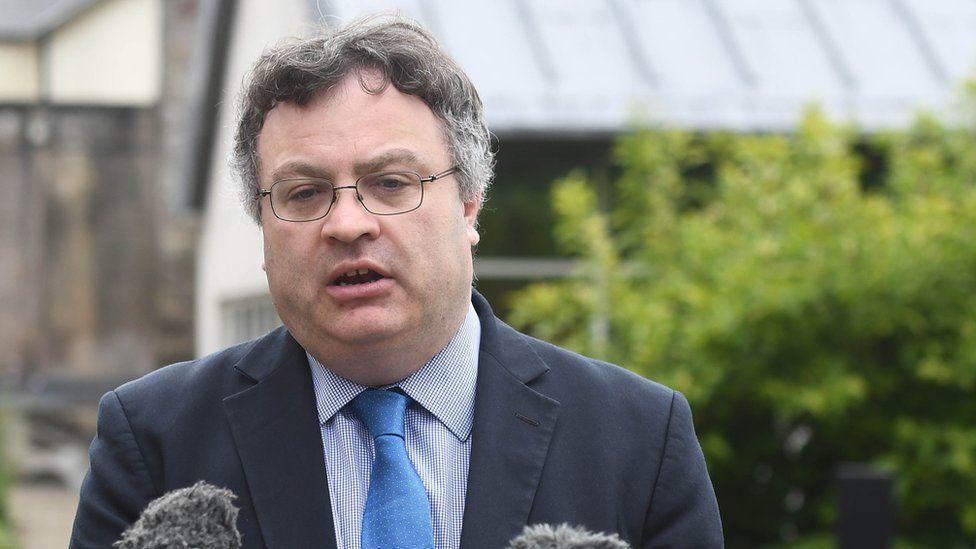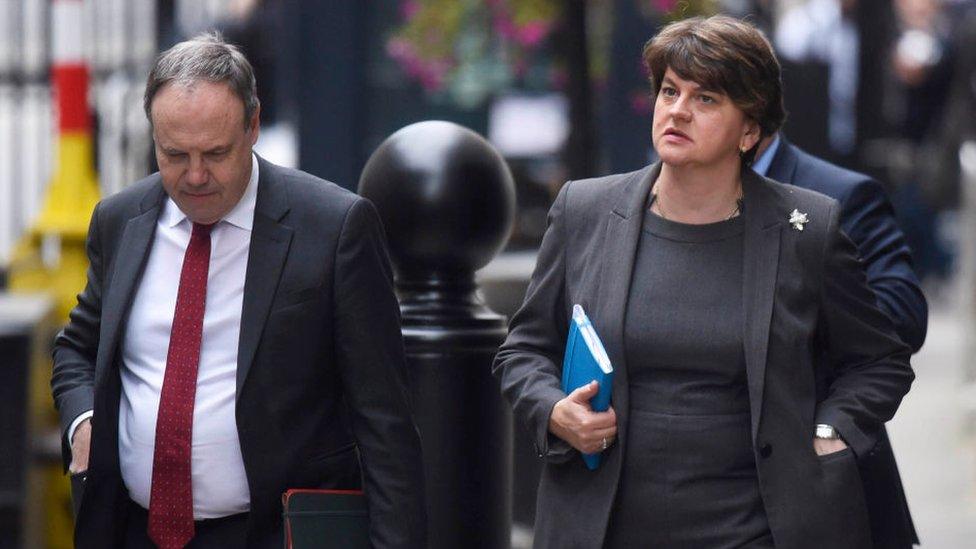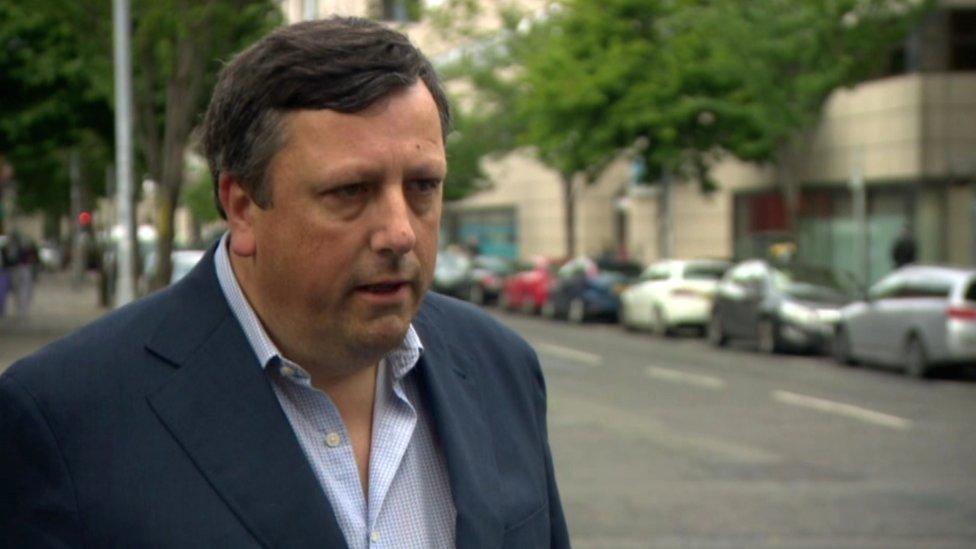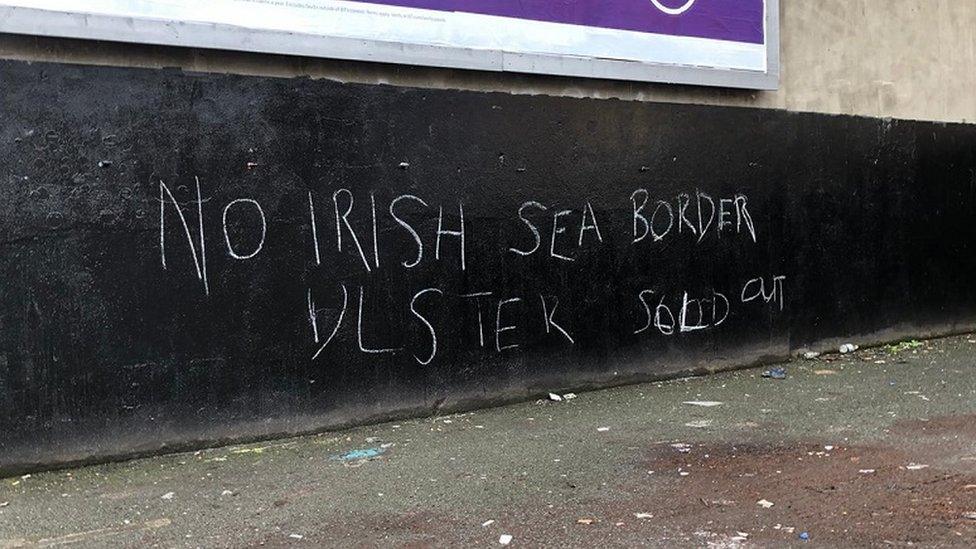NI Protocol: Farry criticises DUP over loyalists meeting
- Published

Stephen Farry says the meeting between the DUP and the Loyalist Communities Council sent out a mixed message
The Alliance Party has criticised the Democratic Unionist Party (DUP) for meeting a group representing loyalist paramilitaries to discuss opposition to the Northern Ireland Protocol.
The Loyalist Communities Council (LCC) represents groups such as the Ulster Volunteer Force (UVF).
MP Stephen Farry said the meeting sent out a "terrible mixed message".
DUP leader Arlene Foster said it was important that all communities had a voice in the political process.
However Mr Farry said paramilitary groups were not a community.
"We are supposed to have an anti-paramilitary strategy where we are trying to remove the cancer of paramilitarism from our society," he told the BBC's Nolan Show.
"Are we genuine in trying to tackle paramilitaries or do we see these as part of the wider stakeholders in our society to be consulted and engaged with around important decisions?

He said while all individuals in Northern Ireland had the right to have their voices heard, groups representing paramilitaries had "no place in our society".
"The LCC is an legal organisation but it is there to give a voice to illegal organisations - and membership of a proscribed organisation is a crime," he said.
'Meeting entirely appropriate'
Mrs Foster was joined at the meeting by her party colleagues Lord Dodds and Gavin Robinson, the East Belfast MP.
She said it was appropriate to meet the LCC and that she would do so again.
"I am a constitutional and political politician and it is important I listen to all voices in the loyalist and unionist community," she said.
"I was very pleased to meet the LCC and hear their concerns about the protocol, the status of the UK and Belfast Agreement."
The party said the discussion had been "constructive and useful".
DUP MLA Paul Givan, who chairs the Stormont Justice Committee, described Mr Farry's criticism as "sanctimonious hypocrisy".
He said the Alliance Party leader and Justice Minister Naomi Long had been involved in a Stormont-led effort to help people in paramilitary organisations to "transition out of those organisations".
'Anger among loyalists'
Progressive Unionist Party leader and former UVF prisoner Billy Hutchinson said the LCC had been "talking to a lot of people - elected and unelected".

David Campbell is the chair of the Loyalist Communities Council
"It's good that political parties talk to them to find out where they are," he said.
The LCC's chairman David Campbell recently faced criticism after saying loyalists would "fight physically" to maintain "freedoms" within the UK.
In January, the LCC met top civil servants from the Northern Ireland Office to express anger at the Irish Sea border arrangements.
Several unionist politicians have pointed to growing anger within loyalist communities and claim the post-Brexit arrangements for Northern Ireland could provoke violence.
The LCC was set up in 2015 by Mr Campbell, a former chairman of the Ulster Unionist Party, and Jonathan Powell, chief of staff to former Prime Minister Tony Blair, as a means to help bring an end to loyalist paramilitarism.
It is not a proscribed organisation and is said to represent a range of individuals and views from the wider Protestant, unionist and loyalist communities.
- Published26 February 2021
